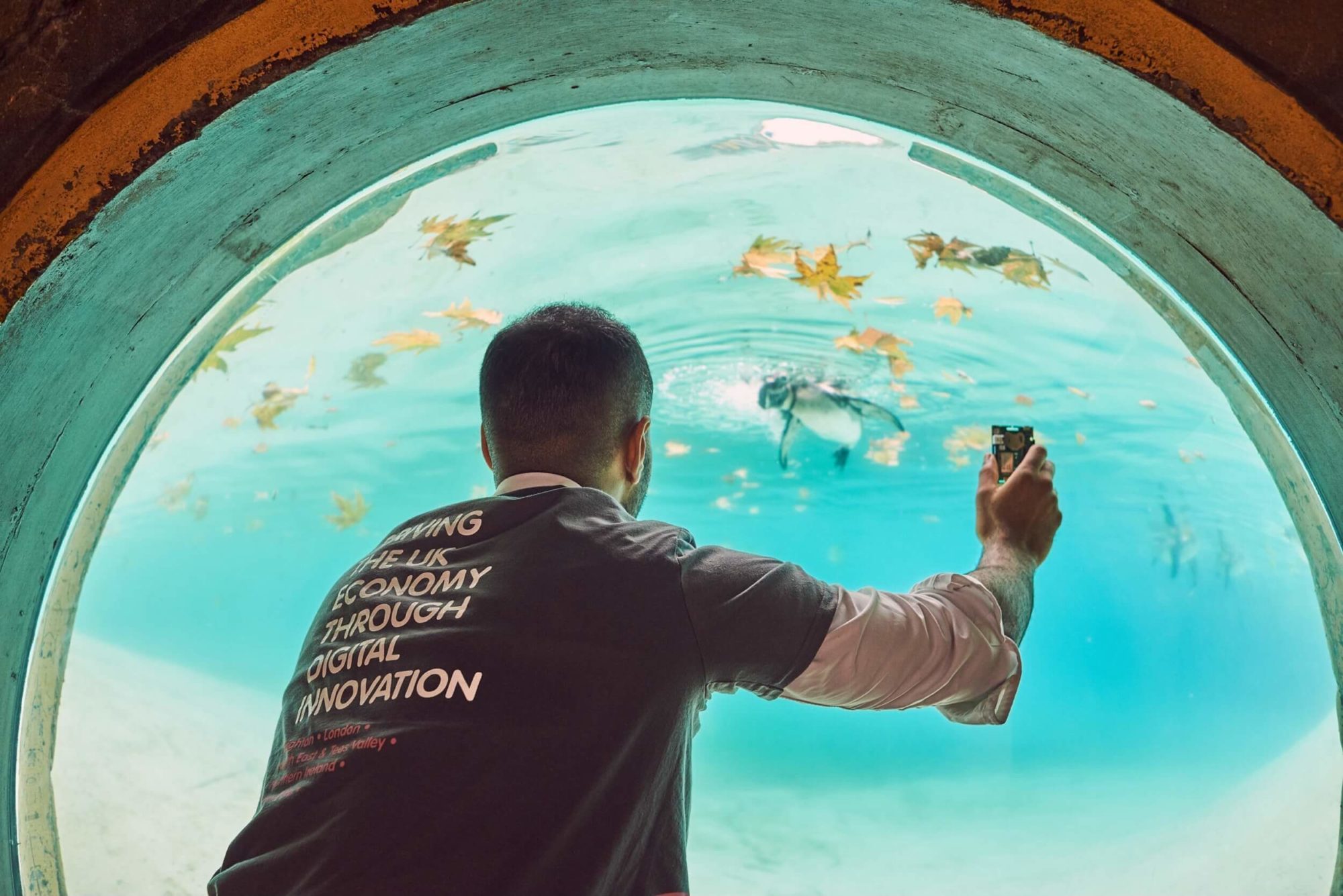Global animal poaching tackled by the Internet of Things at ZSL London Zoo
Posted 4 Sep 2017
Digital Catapult enables ZSL to experiment with IoT-enabled anti-poaching technology.
London, 05 September 2017 – Digital Catapult is working with ZSL (Zoological Society of London) to support the development of next generation anti-poaching technology utilising the Internet of Things (IoT) and Low Power Wide Area Network (LPWAN) technologies. Through Digital Catapult, ZSL engaged UK based companies to develop new components for the solution to meet their high-level designs and specifications. The end goal is to establish a sensor and satellite enabled network to help conservationists monitor wildlife and respond to poaching threats on land and at sea in some of the world’s most remote national parks.
As part of the project, Digital Catapult has installed an LPWAN base station at ZSL’s headquarters at ZSL London Zoo, enabling prototypes to be easily be tested and validated on site. This base station extends the capital’s growing LPWAN network, Things Connected, which is available for the UK’s tech entrepreneurs and developers to test IoT innovations in the real world.
Poaching is one of the most serious issues facing wildlife worldwide. Up to 35,000 African elephants were killed by poachers last year, while black rhino and mountain gorilla populations continue to suffer[1]. LPWAN has the potential to play a key role in defeating this practice in game reserves by enabling remote sensors to communicate with one another reliably over long distance using very little power. These connected sensors are able to detect activity nearby and determine whether these originate from wildlife or poachers, raising real time alerts for conservationists monitoring the area.
This technology will build on the pioneering work already undertaken in areas including Kenya, Nepal, Australia, the Chagos Archipelago and Antarctica, allowing networks of sensors to be extended deeper into remote wildlife habitats.
The benefits of LPWAN, championed by Digital Catapult’s Things Connected programme, are numerous – extending to smart transport, professional health monitoring and energy. The programme is helping the UK establish itself as a pioneer in this space, overseeing the instalment of 50 base stations across London. The network will offer a free testbed to organisations developing IoT solutions, streamlining prototyping and enabling them to bring their products and services to market faster.
Dr Jeremy Silver, CEO, Digital Catapult, said: “The Things Connected programme is reinforcing the UK’s leading position for IoT innovation, and this project shows the far-reaching and important applications of this. Connectivity is critical today – for tackling threats such as poaching, but also for developing next generation solutions across sectors. The greater connectivity provided by this base station deployment will aid other organisations that want to bring IoT solutions to market, enabling the UK to further capitalise on the multi-billion-pound industry.”
Sophie Maxwell, Conservation Technology Lead at ZSL said: “We’re devoted to the worldwide conservation of animals and their habitats, and this LPWAN network will add an additional technological edge to our work. The Internet of Things has exciting potential to make wildlife conservation more efficient than ever before and we’re pleased to see Digital Catapult provide the support to make this happen.”
For interviews, imagery or further information please contact:
Brands2Life
020 7592 1200
[1] https://www.awf.org/campaigns/poaching-infographic/